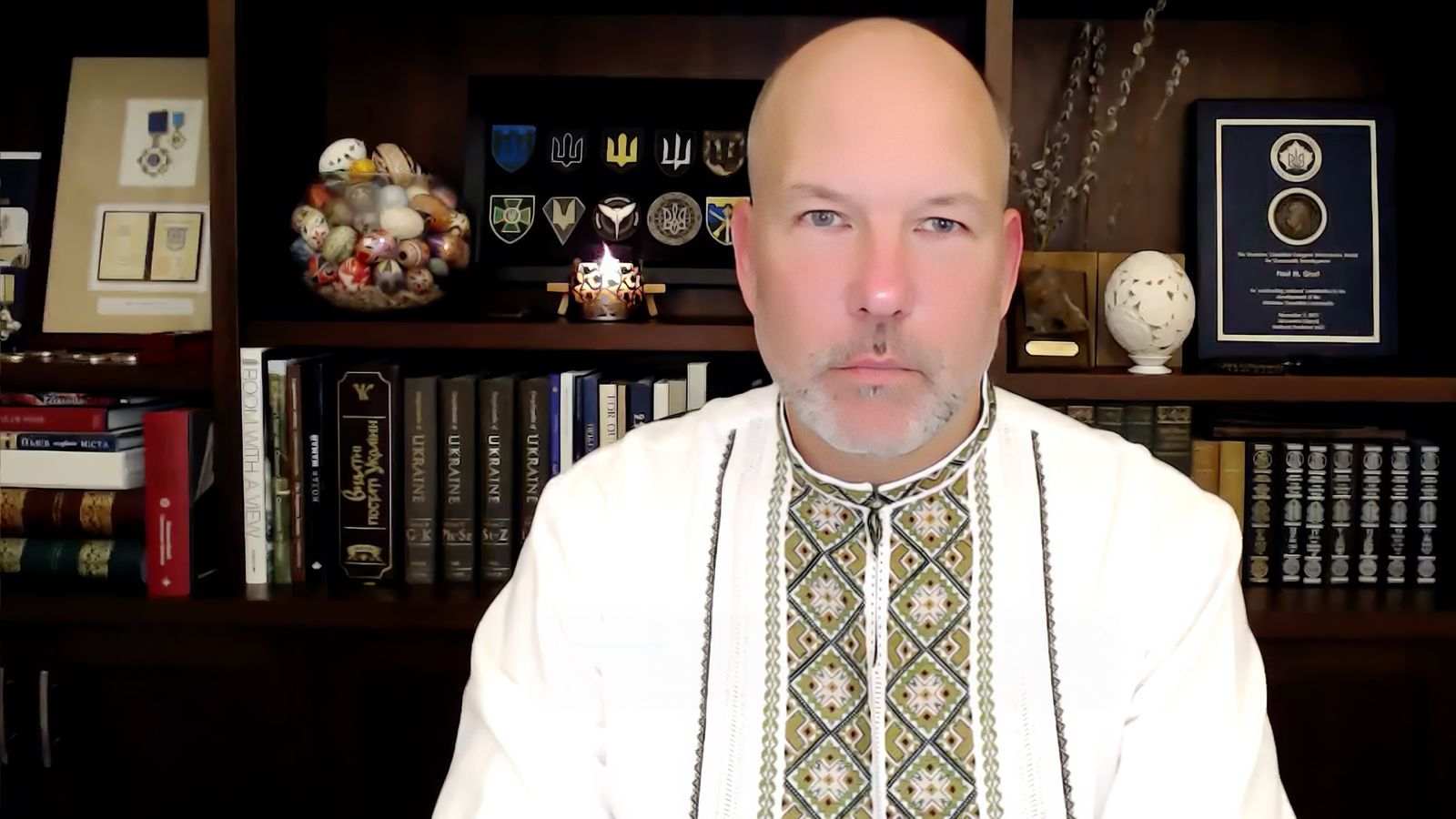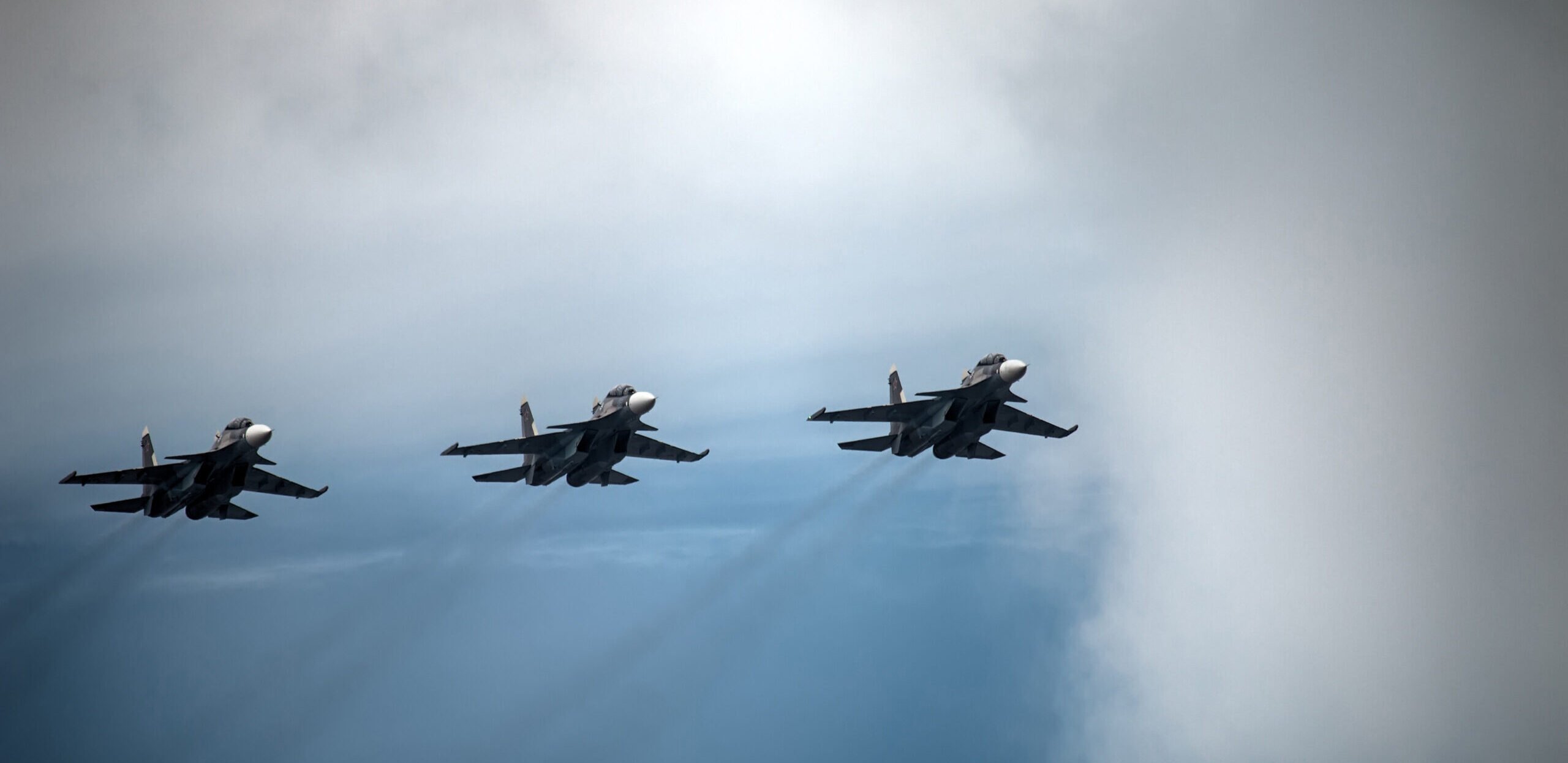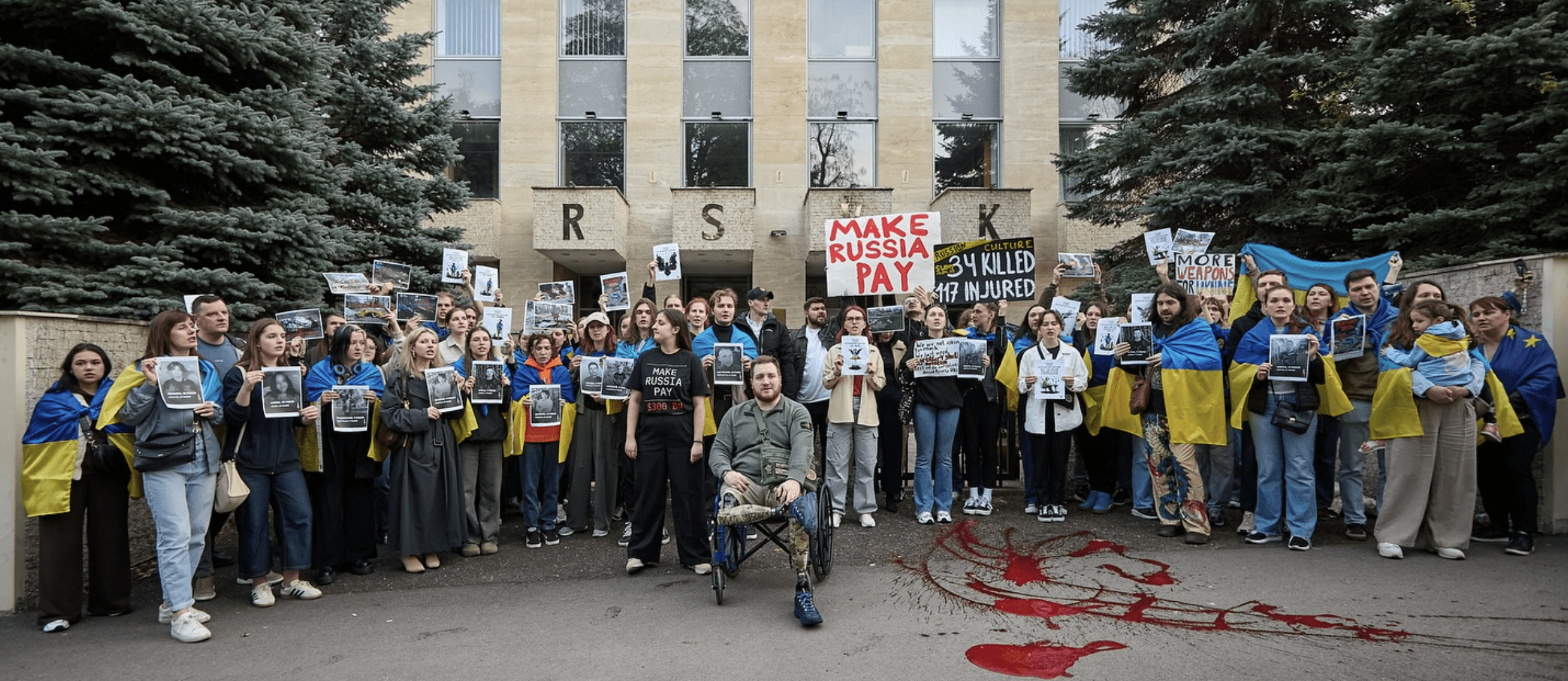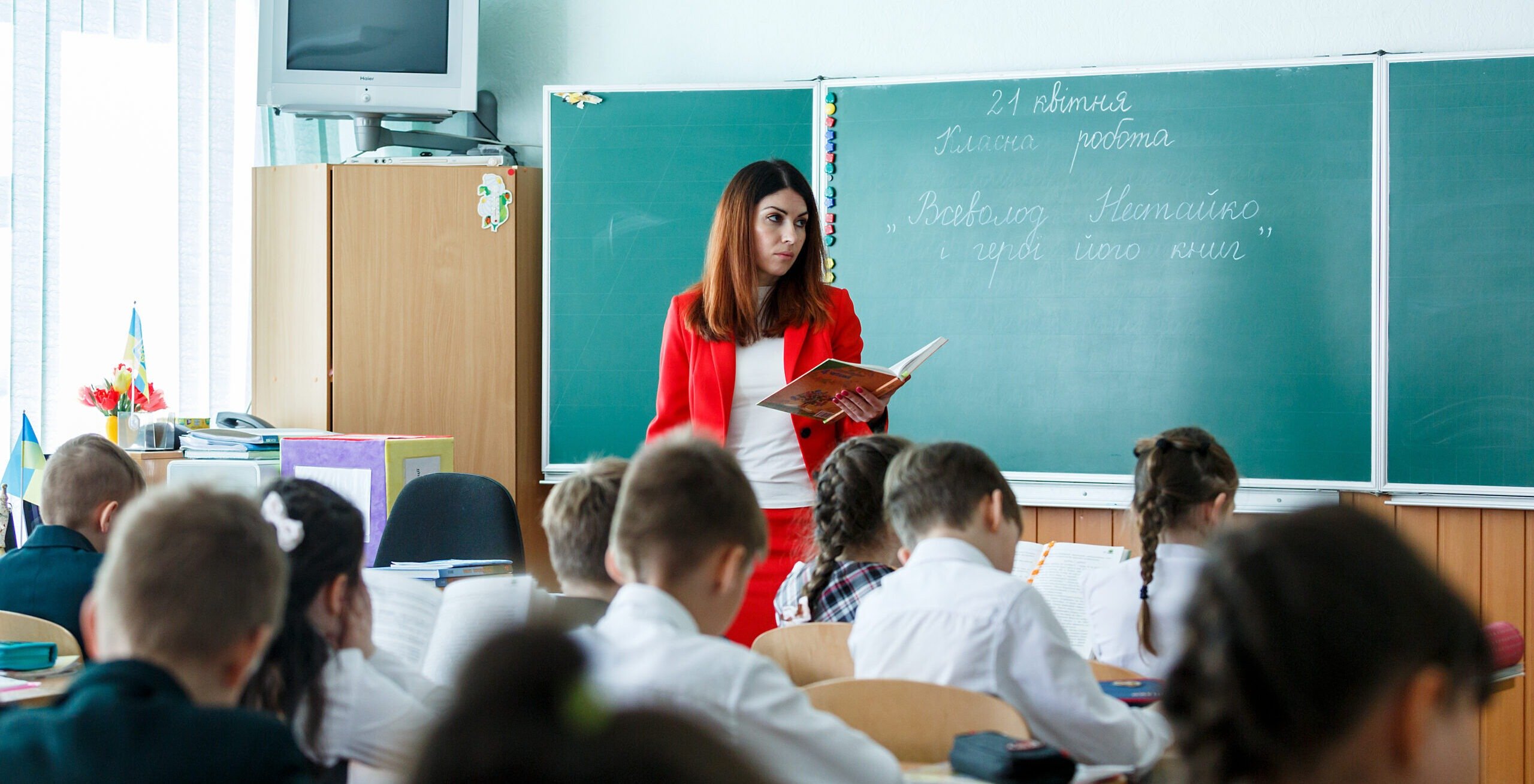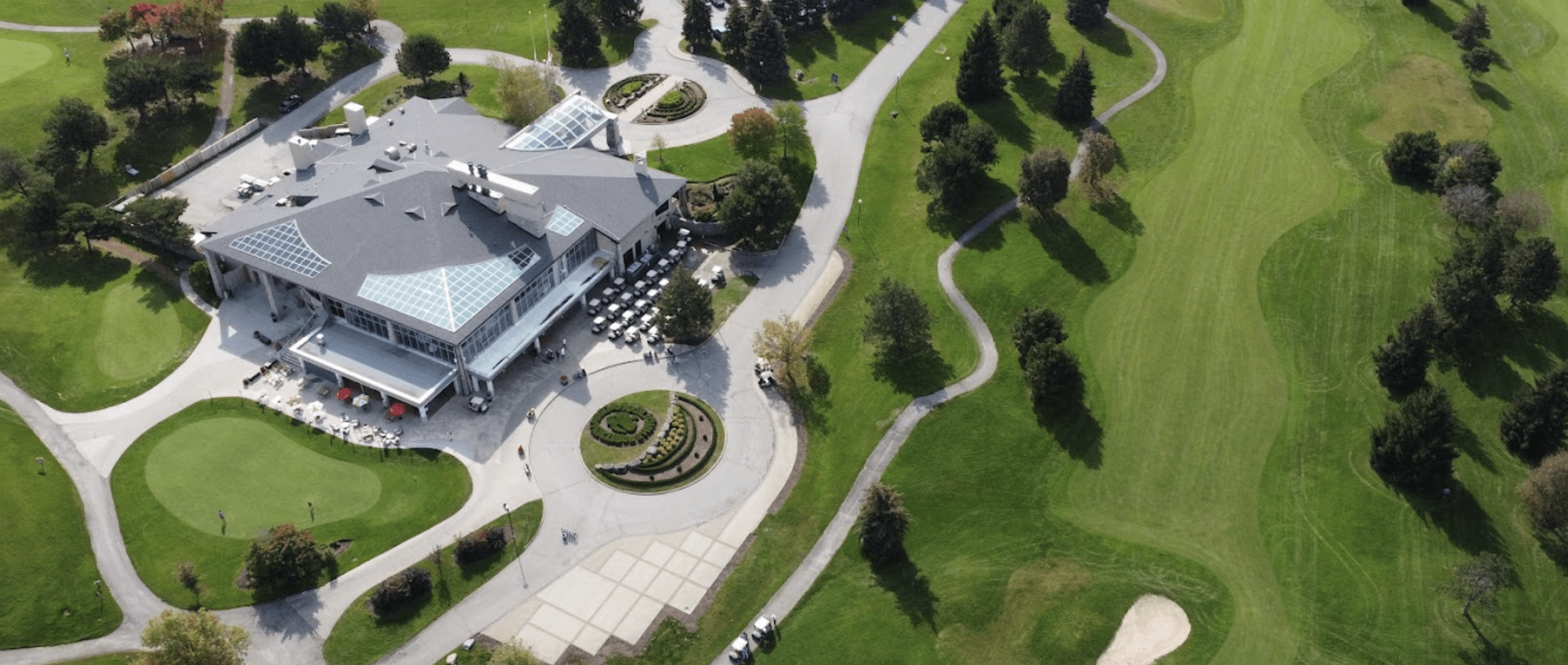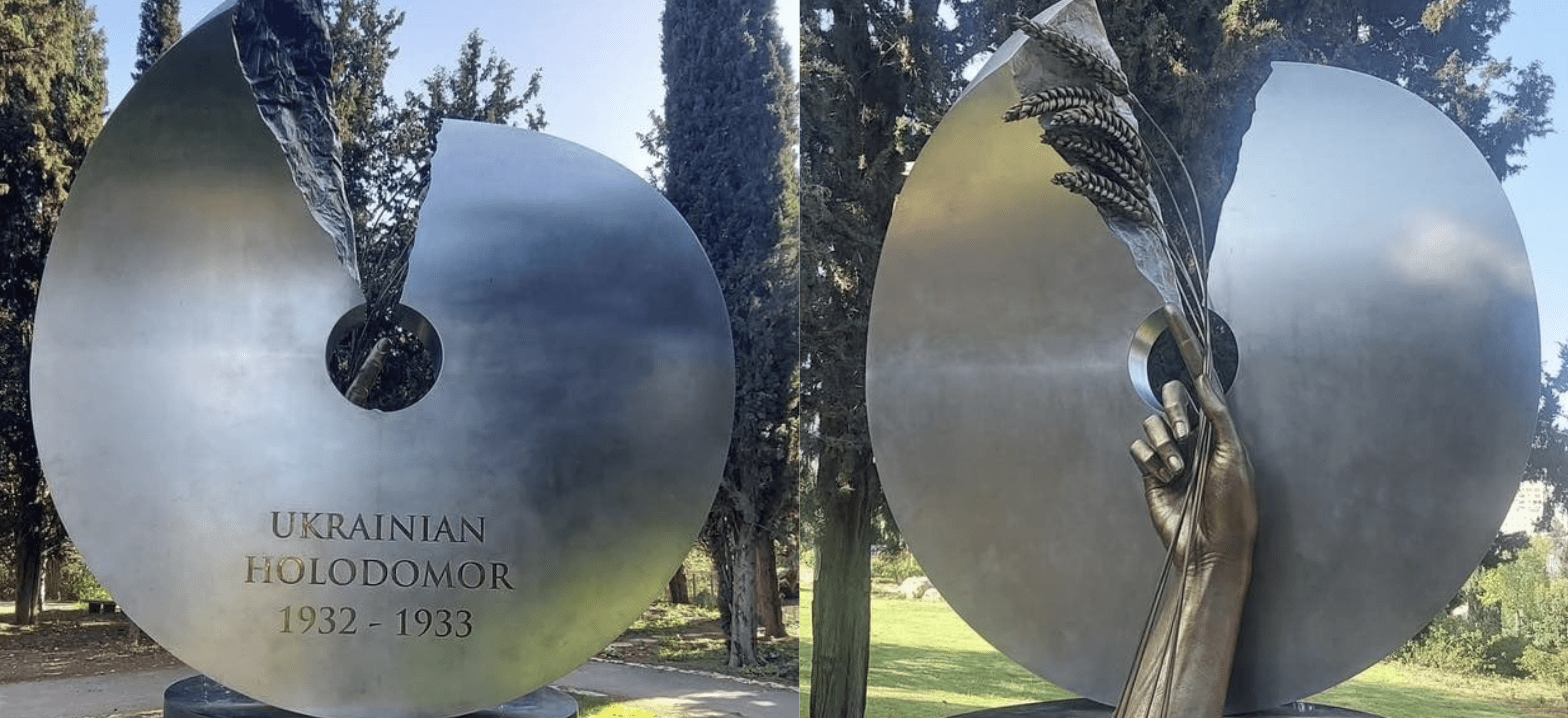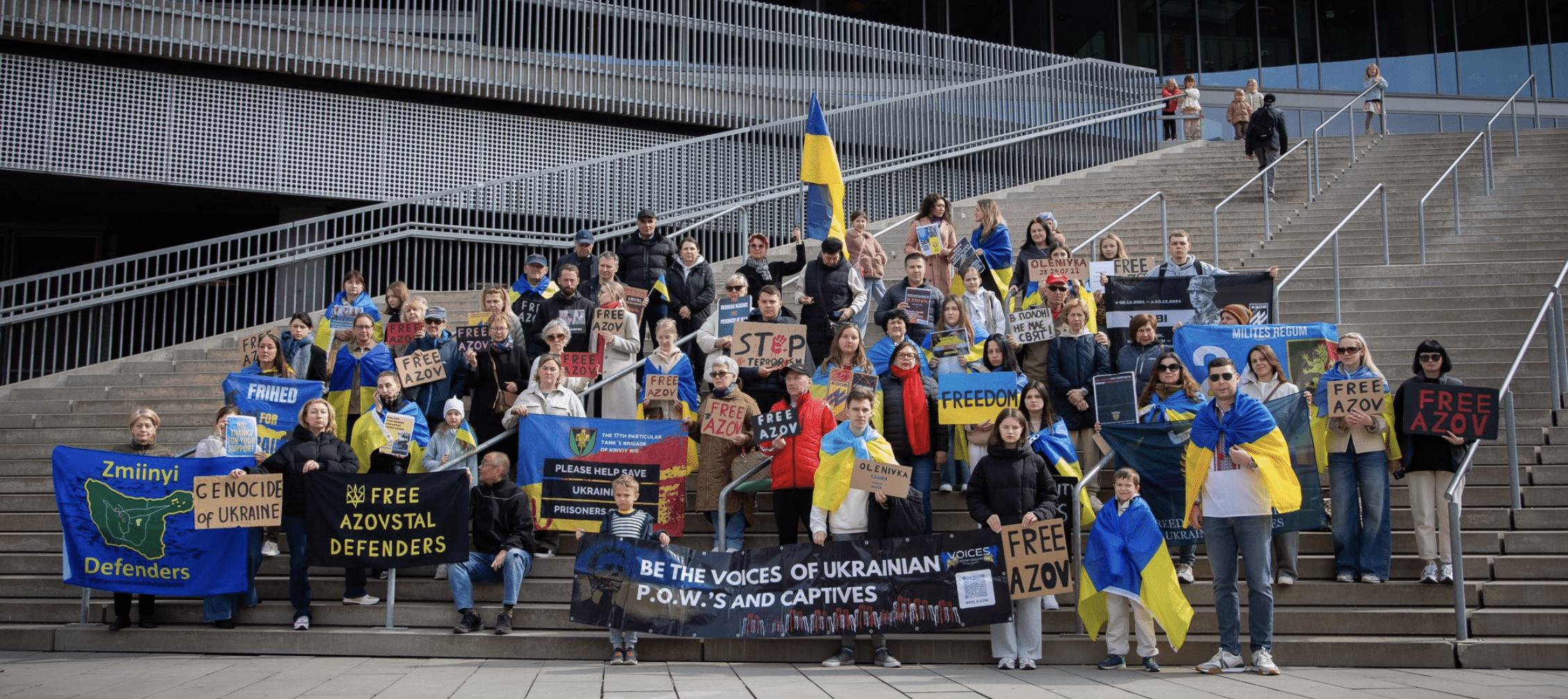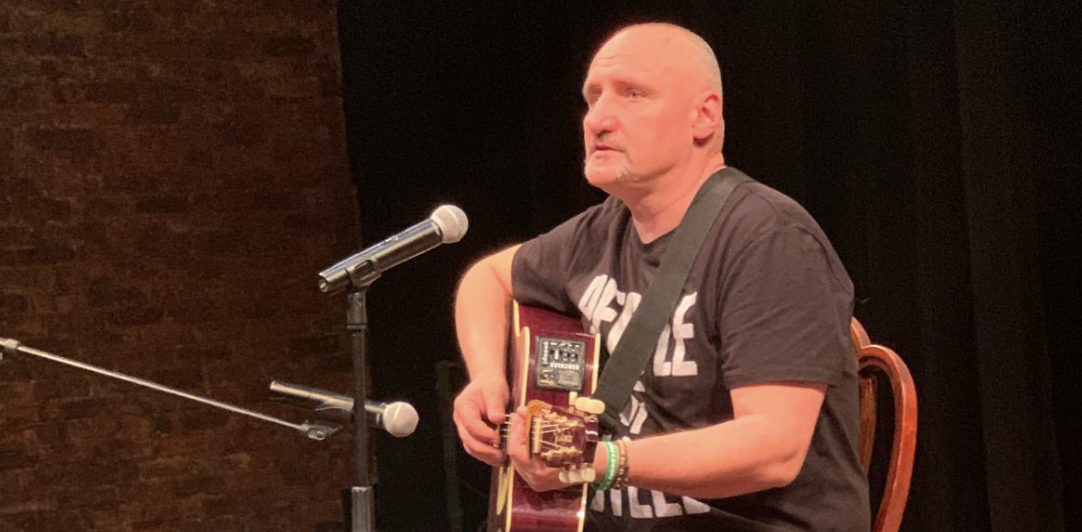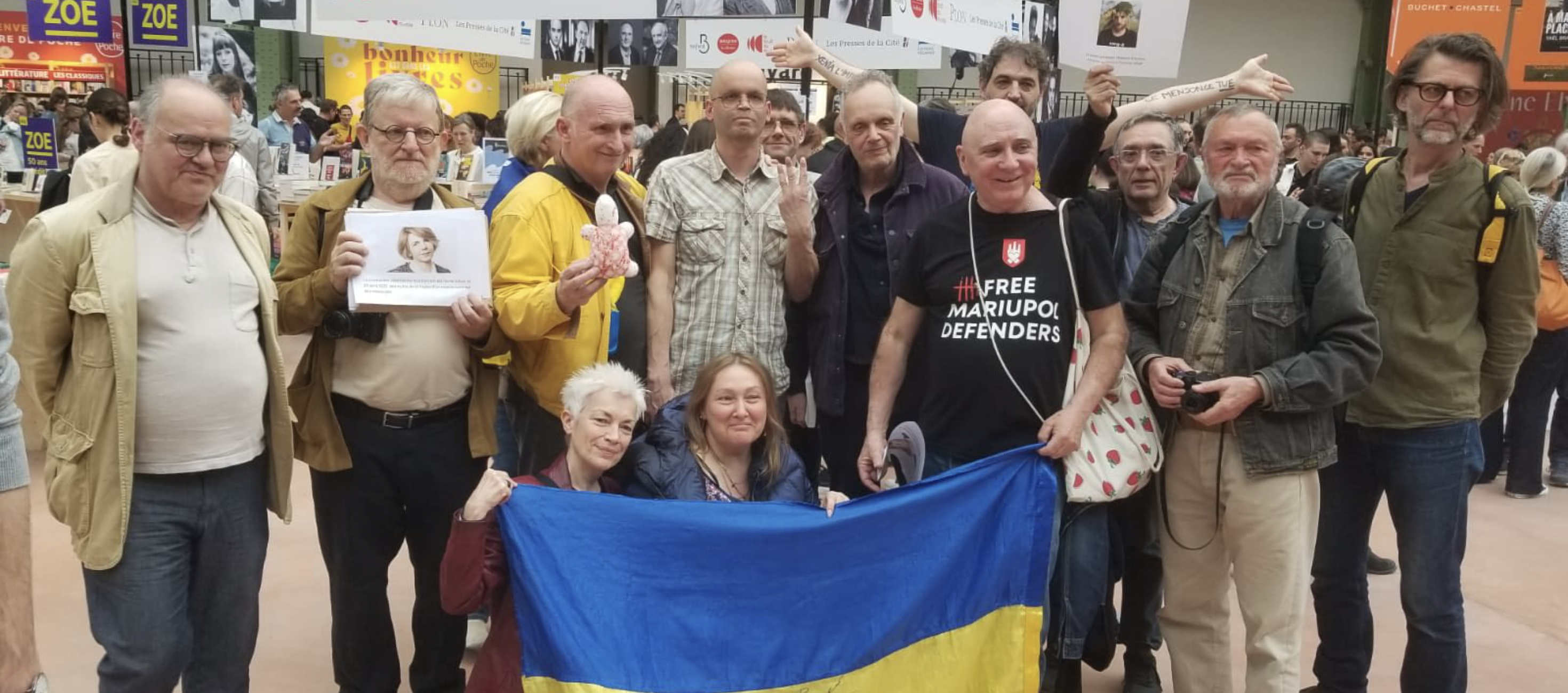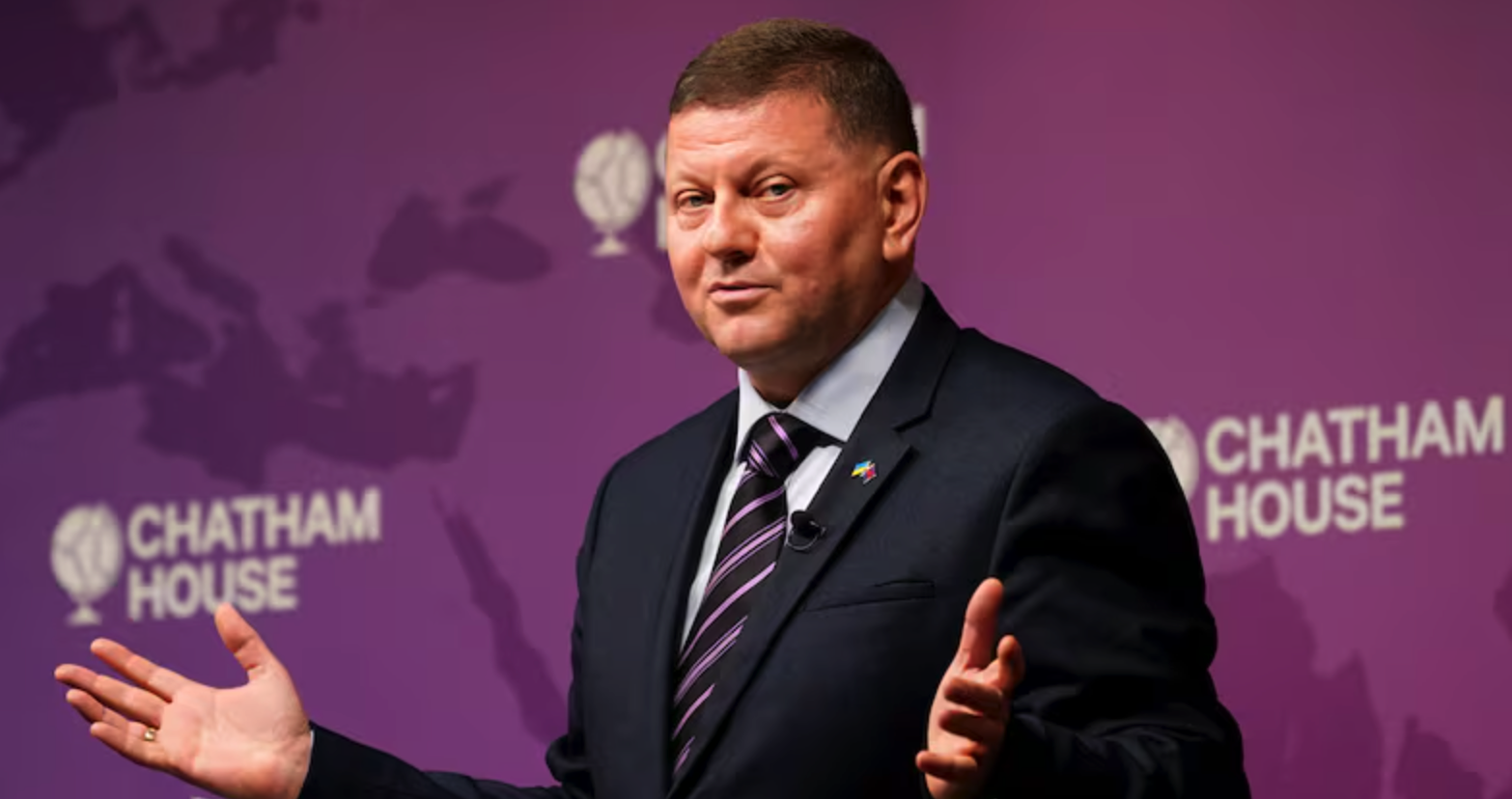
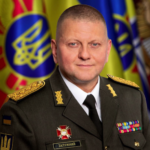
by Valerii Zaluzhnyi, Ambassador of Ukraine to the United Kingdom, and Commander-in-Chief of the Armed Forces of Ukraine (2021–2024). Zaluzhnyi delivered a speech at the Royal Institute of International Affairs (Chatham House).
Source: Chatham House
Good morning. I’m glad to welcome you all and thank you for inviting me to this wonderful place. This is my first time here, and it’s a great honor to be among such intelligent and distinguished people.
Traditionally, I start and end every meeting with my friends and partners by expressing my gratitude for their support. I am thankful that we continue to fight, and I hope we will persevere and achieve victory – not only for Ukraine but for the entire civilized world. This victory will be a hallmark of this century.
I will be talking about some scientific definitions and concepts. I will be absolutely honest and sincere, and first of all, I will be talking as Valerii Zaluzhnyi, as a person who has experience not only in military matters but also in diplomatic work. I will be sharing my personal opinions and thoughts, which, I hope, will help us understand the future that awaits us and the steps we need to take – not only for Ukraine to prevail in this war.
I would like to begin by presenting some factual evidence that we in Ukraine use to scientifically understand what is happening. We will discuss some empirical judgments and the evidence I have formed for myself. Of course, these cannot fully claim to be scientific, but to what extent these judgments are of scientific nature or reality is for you to judge.
- So, first of all, I would like to start by voicing my first empirical judgment and hope that you will agree with me. The first point to acknowledge is the existence of what we can call the Collective West. It does exist, and I personally consider it a group of developed Western countries with highly developed economies, primarily developed democracies, and their own security system, such as NATO, for example. Indeed, it is a security system of the Collective West, and this system primarily protects the democracies and developed economies of those countries.
- Secondly, I believe there are a number of territorial countries in the world with a high concentration of power in their hands. In these countries, there is no democracy; their economies are typically based on mineral reserves or are subject to planned regulation. Everything in these economies is designed to serve the interests of the ruling leader, party, or movement, with everything geared towards maintaining these authoritarian regimes.
- Thirdly, I believe there are countries in the world that, as a result of historical events and the desires of their own people, have managed to break away from authoritarian empires and regimes. Some of these countries have been fortunate enough to join the Collective West, while others, due to the opposition from these authoritarian empires, continue their struggle primarily to join the civilized world. In the current situation, these countries fighting to join the so-called Western world also face the risk of losing their independence. Some countries – I won’t name them – have already formally lost their independence. And there’s Ukraine, my homeland, which has found itself in a war for its own independence from an authoritarian empire. This is a brief statement, and I hope you will share this perspective with me.
- My fourth judgment and statement – very important for understanding the essence of the war in Ukraine – is that, unlike those countries that lost their independence almost bloodlessly, Ukraine has been fighting for its independence for the last ten years with weapons in its hand. The full-scale war has been ongoing for almost three years, with more than 30,000 people already perished and hundreds of thousands injured. Yet, we continue to fight. And it’s difficult not to agree with that. We Ukrainians strive to live in a civilized Western world, in freedom, and I want us all to understand this as we try to identify or comprehend the war in Ukraine. Despite all the troubles we face, we have the right to our own future. Our enemy, by ignoring our desires, denies our history, denies our culture, and, most importantly, seeks to destroy us as a nation in a physical sense – a nation with its own history and culture. This is evidenced not only in the stories of the last century, let’s take Holodomor. We should also remember recent events in Bucha and Hostomel, and the occupied territories. These facts make any future peaceful coexistence impossible, and therefore, we cannot consider any options to stop the war based on intentions for mutual security.
- My fifth judgment is that I personally believe the reason for what is happening in Ukraine today is the logical consequence of the reluctance of the Collective West, which first of all declares its democratic values. These are the logical consequences of the reluctance of the Collective West to influence the global security system, taking advantage of the weaknesses of the West, and, as I personally see it, of the United States. In 2008, Russia began its so-called expansion, creating a belt of its security space. Then, in 2014, under the silence of the same Collective West, Russia started the war against Ukraine, which has become the bloodiest war of the 21st century in the heart of Europe. That’s a fact.
- My sixth statement is that, today, in order to keep the West in fear, Putin speaks about red lines and nuclear weapons. Western politicians, often being held hostage by their own voters, repeatedly talk about the need to avoid escalation. This is simply a fact of reality. The question remains: will this war be limited to only Putin’s appetites concerning Ukraine? Naturally, the answer should come from Western politicians, and they must be honest in their response to the voters.
- My seventh statement – again, this is my personal opinion – is that the Collective West didn’t truly believe in Ukraine. That’s why the Western press, fearing Putin, initially gave Ukraine three hours, then three days, and eventually came to the edge of Ukraine. The Collective West, fearing nuclear war or escalation, and I say this as the former commander-in-chief of the Armed Forces of Ukraine, did not provide Ukraine with the necessary amount of weapons. As a result, in 2023, we failed to achieve any significant advancements in defeating Russia. And, consequently, we entered a state of protracted war. In my opinion, finding a way out of this protracted war seems nearly impossible. I won’t dwell on this point, but I hope you’ve had the opportunity to read my previously published articles. I wrote those articles to help you understand what is actually happening in Ukraine because I believe that back in 2023, we lost the opportunity to independently bring this war to an end.
- My eighth judgment is this: this is a fact of reality that concerns all of us present here in this audience and applies to each of you. Please tell me, is it now a secret that China, North Korea, and Iran have united around Russia? Or does anyone believe that these countries have united against Ukraine? If so, let me be the first to disappoint you – most of these countries don’t even know where Ukraine is. If we look carefully at an organization like BRICS, especially its prospects for expansion, we must ask: what about the Collective West? Is it still afraid of escalation?
- This brings me to my ninth point, which is an important fact of reality: whether you want it or not, and whether the weapons manufacturers with contracts worth billions in their hands want it or not, war has changed. I’m telling you this as the former commander-in-chief of the Armed Forces of Ukraine, and Ukrainian generals and analysts confirm this. Third parties cannot speak on this matter because they were not there, they did not participate, and they were not involved. But I return to my statement: the war has changed. There will be no war of the 1953 model – I’m talking about the Korean War, which effectively ended in summer 2023 in Ukraine – when two professional armies, each more than a million strong, faced off against each other in the battlefield. When robots entered the battlefield, there was laughter from the Western press and local generals. However, by 2024, technology, particularly artificial intelligence, began to play a significant role in warfare. I described this shift in my previous writings, and it’s reassuring to see that no one is laughing at me anymore. Even in the United Kingdom, there’s a recognition of the evolving national defense strategy. It seems that NATO has remained silent and hasn’t adapted to the changes in global security. Despite the transformation of warfare, the organization still relies on principles and weaponry inherited from the Korean War. Global security continues to be built on expensive weapons systems, including missiles, fighter jets, and aircraft carriers. However, in a massive war, the capacity to produce these systems at scale will diminish, reducing their effectiveness. Unfortunately, the future of global security cannot rely solely on these outdated means. I’ve addressed these points in my articles, but I want to emphasize the most important message as a citizen of Ukraine.
- The tenth statement, the most important one. I want to share it with you as a citizen of Ukraine. We have been fighting for our freedom for ten years, and we have not become part of the proposed Russian Union or any group of countries. Our vision for future victory is simple: we need to regain three fundamental things.
- First, we need the feeling of our own security. Every individual should be entitled to feel safe. Ukrainians live with the daily sound of sirens, fearing they may receive a death notice about their loved ones. It is vital that we ensure, at least for the next 100 years, that no one attacks Ukraine again. Documents like the Budapest Memorandum have proven ineffective in this situation. We require security guarantees for ourselves and our children, and this can be addressed immediately. I support the President of Ukraine’s statement that we simply need to join NATO. Another alternative would be to transform Ukraine into a NATO member. While Russia currently has allies that complicate this prospect, we can look to successful examples like Israel. Since its establishment in 1948, Israel has endured ongoing wars, and its citizens have been trained to seek shelter during air raids. Whether such an option is possible for Ukraine remains to be seen, but as of now, there is no alternative to collective security through NATO.
- Second, we need the feeling of unlimited development opportunities. Every Ukrainian should have the chance to thrive, and this depends on the post-war recovery process. Much is discussed in the West about rebuilding and recovery, but we must acknowledge a crucial point: will recovery be feasible without security? Will investors be willing to invest in a country where another war could break out at any moment? The truth is, they will not. No investor will commit to long-term investments in a country lacking security guarantees. Thus, feeling a sense of development is impossible without ensuring safety. There are no long-term prospects for Ukraine without security guarantees.
- The third one, a very simple feeling. Each Ukrainian desires to feel at home – this means being in the places where we were born, where we grew up, where our parents are buried, and where our children live. We want to live in peace and quiet, in the places that truly feel like home.
I want to emphasize that I am not here to criticize the West or NATO; on the contrary, I am deeply grateful to the collective West and NATO, especially to the people in those countries who have supported and continue to support Ukraine in our fight. I understand that no one is indebted to Ukraine, even regarding the Budapest Memorandum. We are fighting daily for our survival. I just hope that George Santayana was wrong. As humanity, we hold the destiny of the 21st century in our hands. We must be wise and learn from our past to avoid repeating it in the future.
Cover: AP Photo/Alberto Pezzali
